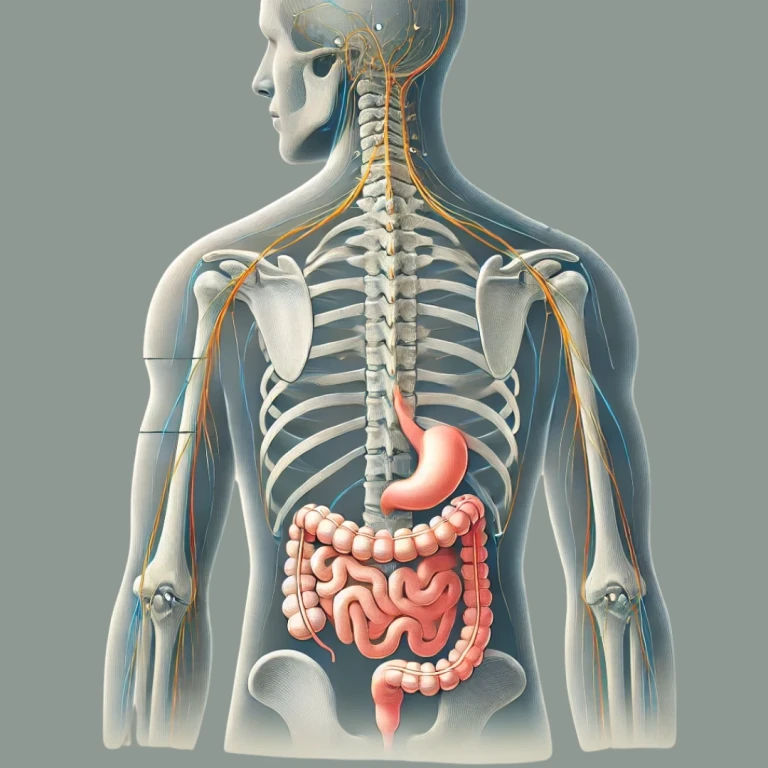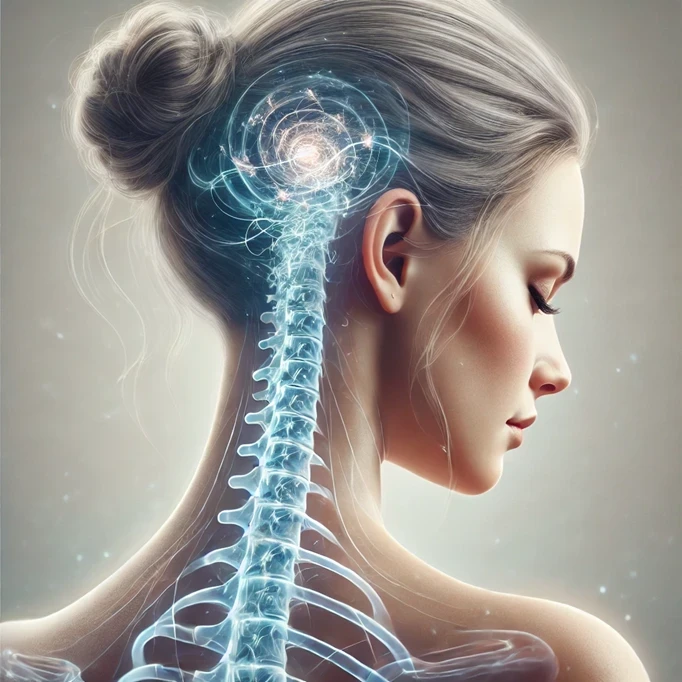Chiropractic Care for Post-Concussion Symptoms in Iowa
Hi everyone, I’m Dr. Reis from Atlas Specific Chiropractic in Hiawatha, IA. As an upper cervical chiropractor committed to serving Eastern Iowa, I often address conditions that impact daily life, such as post-concussion symptoms. Concussions are common in Iowa, whether from sports like high school football, farm accidents, or slips on icy winter roads. When symptoms linger, it becomes post-concussion syndrome (PCS), leading to ongoing headaches, dizziness, fatigue, and more. In this article, we’ll explore chiropractic care for post-concussion symptoms, with a focus on upper cervical chiropractic as a natural treatment option. By targeting upper cervical misalignment through atlas adjustments, this approach offers potential relief without medications or invasive procedures. If you’re searching for “natural treatment for post-concussion syndrome near me” or “upper cervical chiropractor in Iowa,” let’s delve into what you need to know about this evidence-based method for PCS relief in our state.
By downloading the Digital Patient Chart mobile app you can better control your patient portal.
Understanding Post-Concussion Syndrome: A Persistent Challenge
Post-concussion syndrome occurs when concussion symptoms persist beyond the expected recovery period, typically lasting weeks, months, or even longer. A concussion is a mild traumatic brain injury caused by a blow or jolt to the head, disrupting normal brain function. While most people recover within days to weeks, about 10-30% develop PCS, experiencing prolonged issues. Common symptoms include persistent headaches, vertigo or dizziness, cognitive fog, sensitivity to light and noise, sleep disturbances, neck pain, and emotional changes like irritability or anxiety.
In Iowa, PCS is particularly relevant due to our active lifestyle. Sports-related concussions are prevalent among youth athletes in activities like wrestling or soccer, while adults might face them from work-related incidents in agriculture or manufacturing. Harsh weather, such as blizzards or thunderstorms, increases risks of falls or vehicle accidents, contributing to upper cervical subluxation—a misalignment in the top vertebrae that can exacerbate PCS symptoms. Traditional management often involves rest, medications for pain, or cognitive therapy, but these may not address underlying structural issues in the spine. Upper cervical chiropractic offers a complementary approach by focusing on the atlas vertebra (C1) and axis (C2), which protect the brainstem and influence neurological function.
Recognizing PCS early is key, as delayed treatment can prolong recovery. Symptoms like neck pain or headaches may stem from upper cervical misalignment, which disrupts cerebrospinal fluid flow and nerve signals. At Atlas Specific Chiropractic, we emphasize precise diagnostics to identify these issues, providing a foundation for natural post-concussion syndrome treatment tailored to Iowans’ needs.
Common Causes of Post-Concussion Symptoms and Their Impact in Iowa
Concussions often result from direct impacts, but PCS arises when the body doesn’t fully recover, potentially due to secondary factors like whiplash or spinal misalignment. Upper cervical subluxation is a frequent culprit, as the force of a concussion can shift the atlas vertebra, compressing nerves or restricting blood flow to the brain. This misalignment can lead to ongoing inflammation, impaired balance, and cognitive challenges.
In Iowa, causes are diverse: youth sports concussions from football games in Ames or Iowa City, agricultural injuries from equipment mishaps in rural areas, or car accidents on highways like I-80 during winter. Even minor incidents, like falls on uneven farm terrain, can cause upper cervical misalignment, prolonging symptoms. Environmental factors, such as Iowa’s extreme temperature swings, may worsen inflammation or muscle tension around the neck, amplifying PCS effects.
Understanding these causes highlights why a holistic approach is essential. While medical interventions focus on brain recovery, chiropractic care for post-concussion symptoms addresses the craniocervical junction—the area where the skull meets the spine. Misalignments here can irritate the brainstem, contributing to dizziness and headaches. By correcting these through atlas adjustments, upper cervical chiropractic promotes natural healing, reducing the need for long-term symptom management.
How Upper Cervical Chiropractic Provides Relief for Post-Concussion Symptoms
Upper cervical chiropractic specializes in the top two vertebrae, using gentle techniques to restore alignment without forceful manipulations. At my practice, we employ methods like the Atlas Orthogonal technique, which involves precise, instrument-assisted adjustments to the atlas vertebra. This non-invasive approach corrects upper cervical subluxation, alleviating pressure on the brainstem and improving nerve function, cerebrospinal fluid circulation, and blood flow—all critical for PCS recovery.
The process begins with a thorough assessment, including digital X-rays to measure misalignments accurately. Once identified, atlas adjustments are applied to realign the spine, often leading to reduced headaches, improved balance, and clearer thinking. For PCS, this is vital because concussions frequently involve neck injuries, and addressing upper cervical misalignment can mitigate persistent symptoms. Unlike general chiropractic, upper cervical care is highly targeted, making it suitable for sensitive post-concussion cases where gentle interventions are preferred.
In Iowa, where access to specialized neurology might require travel to larger cities like Des Moines, local upper cervical chiropractic offers convenient, natural treatment for post-concussion syndrome. Sessions are customized, with frequency adjusted based on progress, ensuring safe and effective care.
The Science and Evidence Supporting Chiropractic Care for PCS
Research increasingly validates chiropractic interventions for PCS. A study examined the effects of chiropractic care on oculomotor and cognitive symptoms in persistent PCS, finding improvements in visual tracking and attention. Another case series on multi-modal chiropractic management, including spinal adjustments, showed reductions in post-concussive symptoms like headaches and dizziness.
Specifically for upper cervical approaches, a case series on NUCCA (National Upper Cervical Chiropractic Association) techniques demonstrated improvements in neck disability and PCS symptoms over 12 weeks. Research also highlights the role of craniocervical junction management in PCS, with adjustments reducing brainstem irritation. A 2024 study suggested chiropractic may aid visual and cognitive recovery in persistent PCS.
Guidelines from chiropractic associations emphasize safe, effective options for PCS, noting that interventions like atlas adjustments can complement traditional care. Evidence from case reports shows improvements in whiplash-associated PCS following chiropractic management. Overall, studies indicate that upper cervical chiropractic can play a pivotal role in concussion recovery by addressing neurological and musculoskeletal factors.
Benefits of Upper Cervical Chiropractic for Post-Concussion Recovery
Opting for upper cervical chiropractic in PCS management offers numerous advantages:
- Non-Invasive Relief: Gentle atlas adjustments avoid surgery or drugs, minimizing risks for those sensitive post-concussion.
- Holistic Symptom Management: By correcting upper cervical misalignment, it addresses interconnected issues like neck pain, headaches, and balance problems.
- Improved Neurological Function: Restoring alignment enhances brainstem communication, potentially reducing cognitive fog and sensory sensitivities.
- Long-Term Prevention: Regular care helps prevent symptom recurrence, supporting overall wellness in Iowa’s demanding environment.
- Cost-Effective and Accessible: Local treatment in Hiawatha reduces travel burdens, making it practical for rural Iowans.
These benefits position upper cervical chiropractic as a valuable natural treatment for post-concussion syndrome, enhancing quality of life.
Lifestyle Tips to Support PCS Recovery Alongside Chiropractic Care
To complement upper cervical adjustments, incorporate these habits:
1. Prioritize Rest and Sleep: Aim for consistent sleep schedules to aid brain recovery; avoid screens before bed to reduce light sensitivity.
2. Manage Stress: Use relaxation techniques like deep breathing or meditation, especially during Iowa’s busy seasons.
3. Maintain Nutrition: Focus on anti-inflammatory foods, staying hydrated to support neurological health.
4. Gradual Exercise: Start with light activities like walking, avoiding high-impact until cleared, to prevent aggravating subluxations.
5. Posture Awareness: Ergonomic setups for work or driving help maintain cervical alignment.
6. Monitor Triggers: Track symptoms related to weather or activities, adjusting routines accordingly.
These tips, combined with chiropractic care for post-concussion symptoms, promote comprehensive healing.
Why Choose Atlas Specific Chiropractic for PCS in Iowa
Upper cervical chiropractic provides a targeted, natural approach to managing post-concussion symptoms, addressing misalignments that prolong recovery. At Atlas Specific Chiropractic, we’re dedicated to helping Iowans overcome PCS through precise atlas adjustments. If lingering concussion effects are affecting you, visit iowaatlasspecific.com or call our Hiawatha office for a consultation. Let’s align your path to recovery today.








Leave a comment